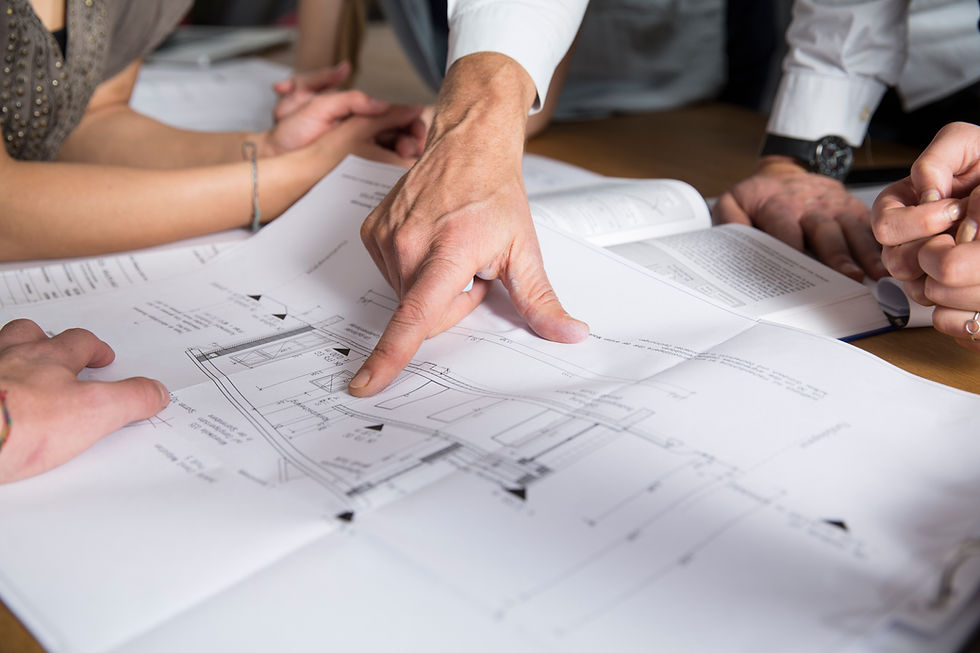Building a New Home: 5 Tips to Protect Your Build
- Jake Snider
- Nov 7, 2016
- 3 min read

Building a new home is a massive investment, and not just in terms of money. For many, it represents the chance to create a beautiful and amazing space where you can spend the rest of your life. So, it can also require a massive investment of time, energy, and emotion.
With all the excitement, it’s easy to get whisked away while contemplating the bright new future. However, building a new home is also an extremely risky endeavor. For those of you undertaking this process, you should read through the following 5 tips for reducing those risks as you move forward.
1. Consult a Competent Construction Attorney.
First, you should absolutely consult with a competent construction attorney regarding the contracts that will apply to your build. A construction lawyer will be able to assess the risks you’re likely to face during this time, and can create contract provisions to head off those risks. One kind of contract that is particularly risky is a time and materials contract, where the contractor basically has free reign to incur expenses and add a “mark-up” of a certain percentage as a fee.
The contract should particularize how and when various payments are to be made, and should provide no confusion as to the rights of the parties. People get used to seeing lengthy, boilerplate contracts and signing off without reading through or understanding them. Trust us when we say that the construction field is one arena where you absolutely need to understand every single clause in your contract.
2. Make Certain You Have the Right Insurance.
Many contractors advertise that they are “Fully Licensed and Insured.” But what they don’t necessarily tell you (and usually don’t even know themselves) is that their insurance may be only a simple commercial general liability policy. The problem is that these policies are sometimes drafted specifically to exclude coverage for the most typical defects that occur on construction projects!
It may be more expensive, but you need to speak with an insurance representative about having the build insured against construction defects, specifically. Companies often refer to this as “builders risk” insurance. As always, make sure the insurance company commits in writing that it’s covering what it says.
3. Do a Background Check on Your General Contractor.
The experience, competence, and professionalism of your general contractor may be the most important factors for ensuring that your build proceeds according to plan and results in an outstanding new home. First, determine if the contractor’s license is limited in any fashion. If so, does the estimated cost of the build approach or exceed that limit? Then, visit the website for the North Carolina Licensing Board for General Contractors. Input your contractor’s name, and the names of his/her business entities to find out if the contractor has ever been disciplined.
Next, examine the builds the general contractor has overseen before. Does the scale and level of workmanship on these other projects instill confidence that the contractor can do what you are asking? Lastly, ask the contractor for references he/she has worked for in the past, and then follow up on them. This could be other owners or former employers, and you need to learn as much as you can about how those other jobs worked out.
4. Consider an Independent Architect or Other Designer to Monitor Progress.
Building a home takes a long time, requires multiple steps, and there is simply no way an inexperienced person outside the field can monitor the progress to ensure that things proceed as planned. You need an independent advocate in the field who will represent your interests and take the builders to task for any shortcomings or other defects.
5. Obtain Photographs Throughout the Build.
Continually ask the contractor to photograph the build at all its stages, and take your own extensive photographs while visiting the site. Our law firm recently litigated a construction lawsuit in which contemporary photographs showing numerous construction defects played a pivotal role in reaching a positive outcome for the owners.
If you’re undertaking a new build or if you’re midstream on a problematic build and wished you’d taken some of the above steps, then you should give the construction attorneys at Asheville Legal a call today.





















For construction firms, Builder’s risk insurance is an absolute necessity for project protection.